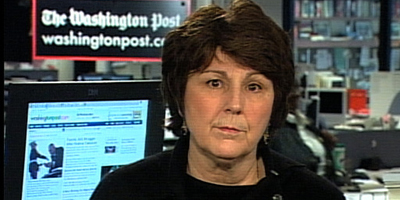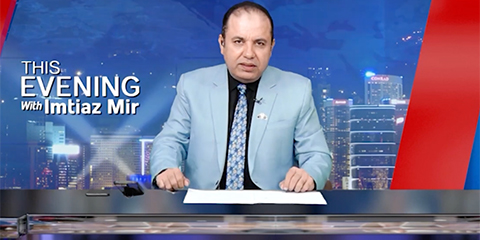
PFUJ calls for end to Impunity for Crimes Against Journalists
November 02, 2025: PFUJ urges Pakistan’s federal and provincial governments to end Impunity for Crimes Against Journalists and ensure their safety and press freedom.
JournalismPakistan.com | Published 13 years ago | Qazi Asif
Join our WhatsApp channel
KARACHI: The United States has plenty of respect for Pakistan’s media and journalists. While on an extended work trip to the US, I had the opportunity to meet many journalists there and the majority of them were full of praise for their Pakistani counterparts.
There were some reservations too about the role of a section of Pakistan’s media perceived as supporting extremism and militant elements.
To get a better perspective of how the media and journalists in the US view their Pakistani counterparts and their role in disseminating information, I sought the opinion of Karen DeYoung, Associate Editor and Senior National Security Correspondent for The Washington Post.
DeYoung has been journalist with The Washington Post since 1975 and has held numerous leadership positions at the paper. She also has experience of reporting from Pakistan and Afghanistan.
Lauding the efforts of the Pakistani media, she said: “I love the Pakistani media. American journalists say Pakistani journalists are good sources for the US media and are hard workers.”
She did have one complaint though. “American journalists are not allowed to go to Balochistan. The Pakistani government also does not allow us access to Peshawar and Lahore,” she said.
During our discussion DeYoung noted even though the US government had supported military governments in Pakistan in the past as dictated by prevailing government policy, American media had remained divided on the issue.
News and editorial teams also had totally opposing viewpoints on the issue as most newsrooms were of the opinion that army dictators should not be supported, but editorial sections always managed to find support for them.
“We did not agree to support Gen Zia and showed lack of foresight in supporting other military dictators in Pakistan as well. This was also the case when our editorial section decided it prudent to support Gen Zia and Gen Pervez Musharraf.”
DeYoung said there also existed an ongoing debate about the legal justification of drone strikes in Pakistan.
“There has been a long disagreement over drone strikes, which is difficult to explain to the public. The Pentagon says it is not involved. The CIA takes a public position that the program doesn’t exist. The Pakistani government says that the US seeks permission for drone attacks from them. Pakistan says the agreement between the countries has not been upheld by the US but the US claims otherwise. There has to be responsible clarity on the issue.”
(The writer is a journalist and electronic media trainer associated with Waqt TV)

November 02, 2025: PFUJ urges Pakistan’s federal and provincial governments to end Impunity for Crimes Against Journalists and ensure their safety and press freedom.

November 02, 2025: Impunity for crimes against journalists deepens worldwide as Pakistan reports a 60 percent surge in attacks and weak enforcement of safety laws.

November 01, 2025: Pakistan Press Foundation reports 137 attacks on journalists in 2025, highlighting rising threats, legal harassment, and censorship on the International Day to End Impunity.

November 01, 2025: A viral Samaa TV clip featuring MNA Sher Afzal Marwat’s crude remarks and Talat Hussain’s laughter raises questions about the declining ethics of Pakistani television.

October 31, 2025: Police foiled a plot to kill DawnNewsTV journalist Tahir Naseer in Rawalpindi after arresting suspects hired for Rs200,000. Naseer says threats followed his reporting.

October 31, 2025: CPJ calls on Pakistan to bring Imtiaz Mir’s killers to justice after the journalist was allegedly murdered by a banned militant group in Karachi.

October 30, 2025: The PFUJ has condemned a fabricated drug case against journalist Matiullah Jan, calling it an attempt to silence him and urging authorities to quash the charges immediately.

October 30, 2025: NewsOne TV remains on air but faces mass layoffs and delayed salaries, exposing Pakistan’s worsening media crisis and financial instability.

November 02, 2025 Independent outlet All About Macau to halt print and online operations amid rising pressure, financial strain, and legal threats, sparking press freedom concerns in the city.

November 01, 2025 Belarus court jails journalist Siarhei Chabotska for extremism and defaming the president, highlighting Minsk’s ongoing crackdown on press freedom.

November 01, 2025 Mexican journalist Miguel Angel Beltran was found murdered in Durango. CPJ urges authorities to ensure justice amid rising violence against journalists in Mexico.

November 01, 2025 UNESCO survey finds one-third of media lawyers cannot effectively defend journalists due to threats, limited resources, and lack of specialization.

October 31, 2025 Radio Free Asia, a US government-funded broadcaster covering tightly controlled Asian media environments, has suspended all news operations after federal funding dried up.